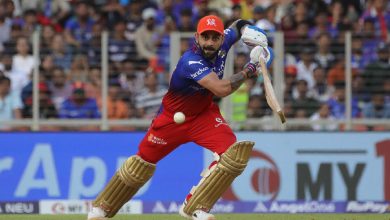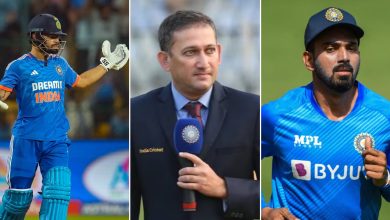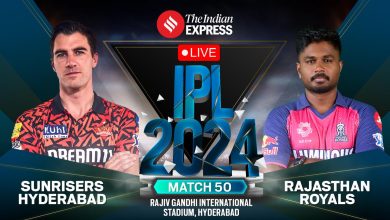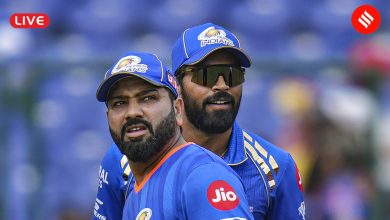My role to bridge gap between computer screen and what a player experiences at the table: Viswanathan Anand

One of the world’s greatest chess minds who, when seated across the board, could see well into the future is consumed a nagging fear that, from behind the microphone, he’d ‘miss something obvious that everyone in the world can see’.
“My fear,” says Viswanathan Anand, “is I’m sitting there rambling and then they play something (else)… I’d be slightly embarrassed. That’s the danger of not having a computer. One of the things I tried in Dubai (during the 2021 World Championship) and I stuck to here was almost never consulting a computer.”
These fears, as it turns out, have proven unfounded. In fact, the five-time world champion almost flawlessly predicts moves and foresees the ‘breakdown of thoughts’ of champions and challengers alike with his quick-witted analysis, typical self-effacing humour, and without any help from the supercomputers.
There might not be any direct Indian interest in the ongoing World Chess Championship match between China’s Ding Liren and Russia’s Ian Nepomniachtchi. But Anand continues to be the link – as a commentator. “I enjoy commentary these days,” says the 53-year-old, talking to Express. “I’ve also done commentary for the World Team Championships, and I’ve done it in other places. So I’m happy to continue doing that.”
It’s the little things he likes about commentary – for instance, the idea of ‘enjoying everything about chess without any tension’. “It’s very nice to go into a World Championship without the tension of preparing,” Anand says. “When I play tournaments, that’s a different kind of joy. But attending a big chess event, you know, it’s the most natural feeling in life and (when) you don’t have the associated tension, that’s kind of fine as well.”
Viswanathan Anand is also mindful of not slipping into the personal stories of the players.
Anand knows a thing or two about the stress of a World Championship, having competed in 10 of them since 1995. Through this period, he’s obsessed endlessly over openings and spaces and lines; and found himself huddled in tiny rooms with a team of seconds, whom he’d sometimes ask after a match, ‘did any of the commentators find anything interesting?’ “And if they said, ‘yes, this one found a very good move here or position there’, that’s actually useful and nice to have,” Anand says.
That’s his guiding principle as a commentator. He is careful not to slip into ‘Grandmaster talk’, speaks with refreshing candour and regales the audience with delightful anecdotes, which are laced with humour. “Hopefully, it comes across naturally,” he says.
Viswanathan knows a thing or two about the stress of a World Championship. (Twitter/NorwayChess)
This one time, when he was commentating during the 2021 World Championship match between Magnus Carlsen and Nepomniachtchi, Anand recalled how he made Anatoly Karpov wait during a World Championship match in 1998 after the Russian made a ‘habit’ of turning up late for every game, among the many mind games chess players resort to during big matches. “For the first two minutes, the only people who were there were FIDE (world chess body) officials and some invited guests and the players had disappeared,” he laughed.
In a sport where the action is often subtle, the consequences of a move might not be immediate and there could be long, dreary pauses during a match, so stories such as these can keep the audience hooked. But Anand is also mindful of not slipping into the personal stories of the players.
Viswanathan had to unlearn and learn different aspects with the increasing use of technology. (FILE)
“As long as I’m not crossing some private line… if a player tells me something in confidence, obviously, I’m going to keep it in confidence, that sort of thing. My general thing is what is publicly known, you cannot expect something unreasonable there. But I would never say something that might embarrass them.”
As has been the case with his playing career, where he’s had to unlearn and learn different aspects with the increasing use of technology, this too has taken some time getting used to, given there wasn’t a lot of live commentary when he played in the World Championships – certainly not on a scale as big as it is now.
Anand marvels at the ‘mind-boggling’ growth in chess due to the ‘exponential’ rise in the number of devices and internet connectivity. But in a crowded space, where GMs have made alternate careers as streamers merely sitting in front of a web camera and behind a microphone, Anand says he keeps asking himself a basic question: “What are the questions the audience will have?”
Foreseeing moves
In these times when commentators are often accused of being too indulgent, loud and over the top, that’s not a bad place to begin. “I see my key role is to bridge the gap between what anybody can see on their computer screen and what a player experiences at the table because I think very few people actually know that side,” he says.
And so, Anand – who does not take help from computers in reading match situations – often takes the audience through his thought process putting himself in a situation a player finds himself in. In the ongoing championship, Anand could flag Nepomniachtchi’s meltdown when he blundered in Game 4, which the Russian eventually lost.
“There, I could see inside of the player. I could see a breakdown of Nepo’s thoughts. It’s unpleasant because you are losing control and you are the one person who doesn’t realise. I could see it happening because it has happened to me, so I was able to say it,” Anand says.
Once before, during the Carlsen- Nepomniachtchi World Championship match 2021, Anand put himself in the shoes of Carlsen, who had been pondering a move for a while in a tight situation. He suggested a routine Knight move so the Norwegian world champion could preserve energy for making critical decisions in the later stages of a match. Five minutes later, when Carlsen played that exact move, Anand rejoiced in the commentary box. “Yes! That’s my boy,” he exclaimed.
“Quite often,” he says now, “I will be talking about something well before it happens. And when it finally happens, I feel good about myself.”
For a man consumed with fear of missing the obvious, Anand can still see well into the future even from behind the microphone.







